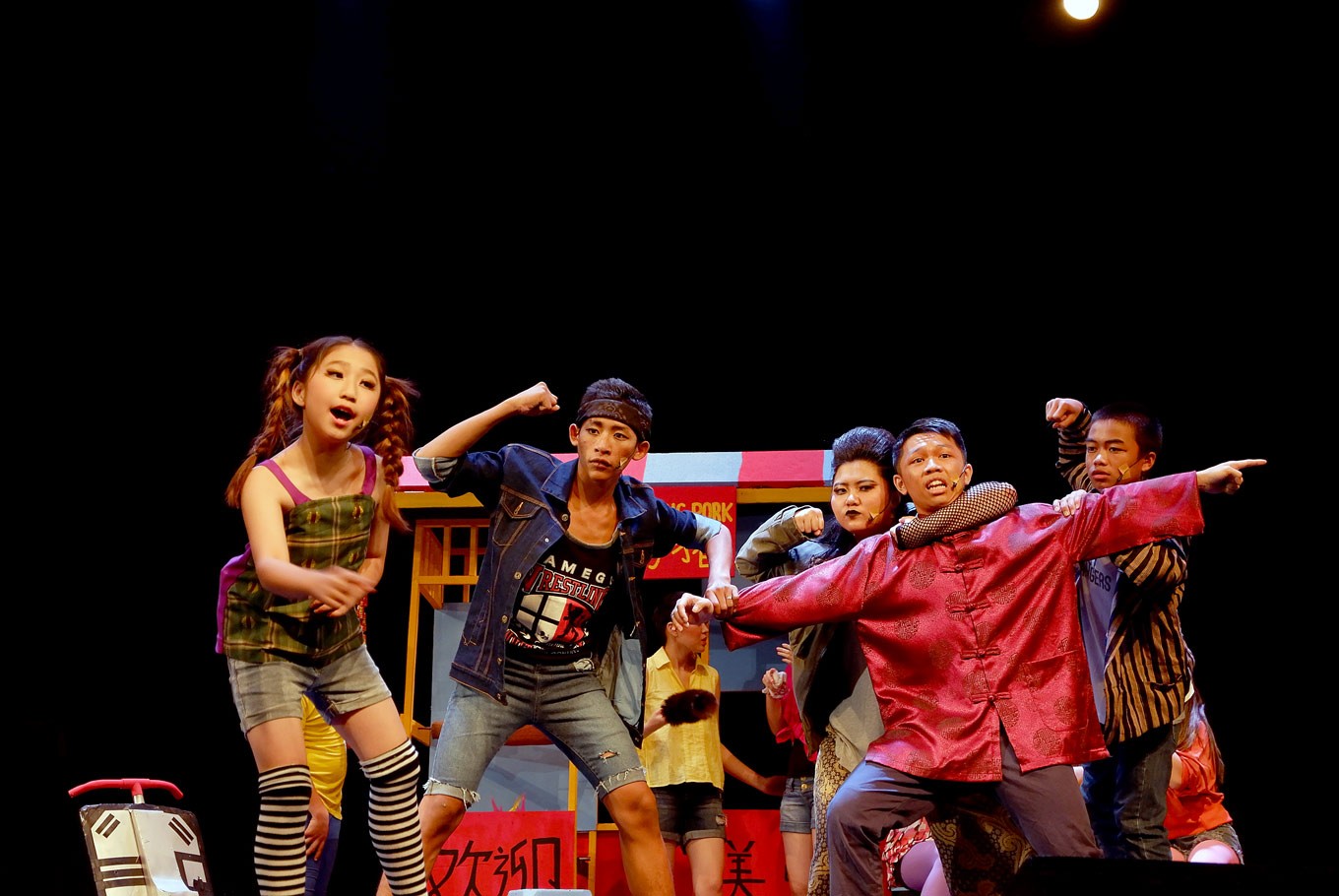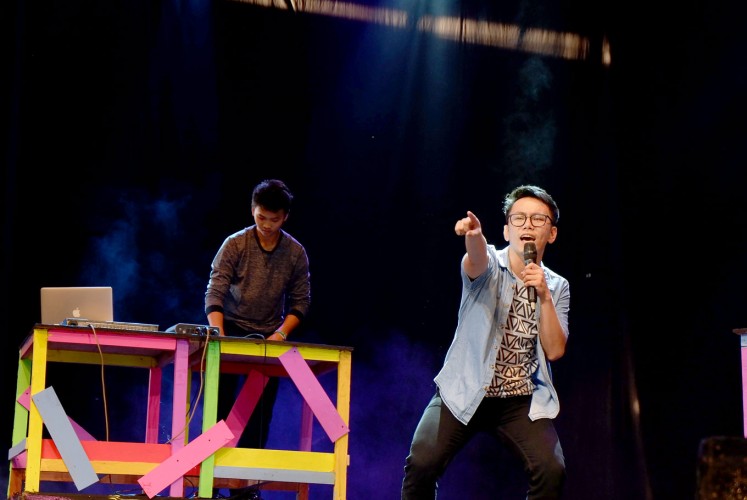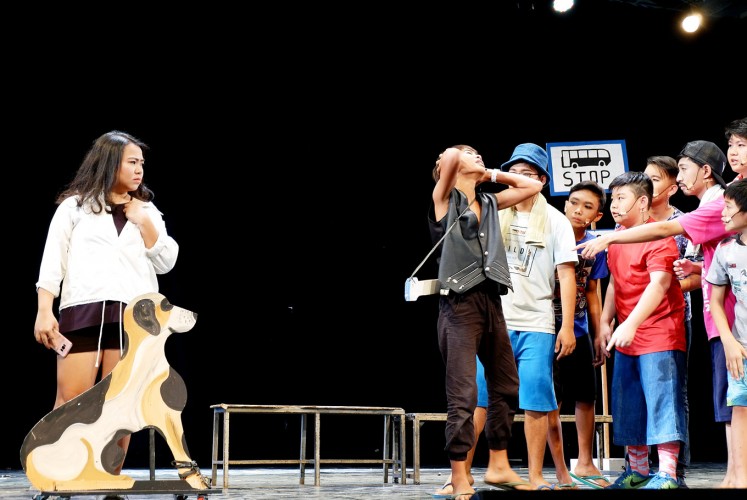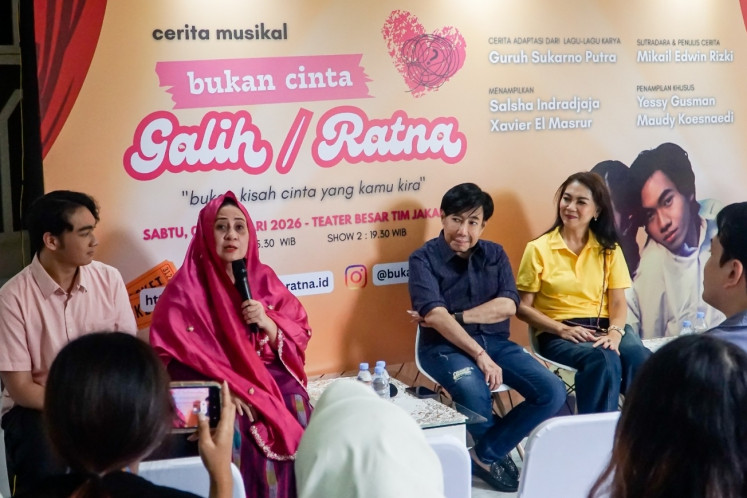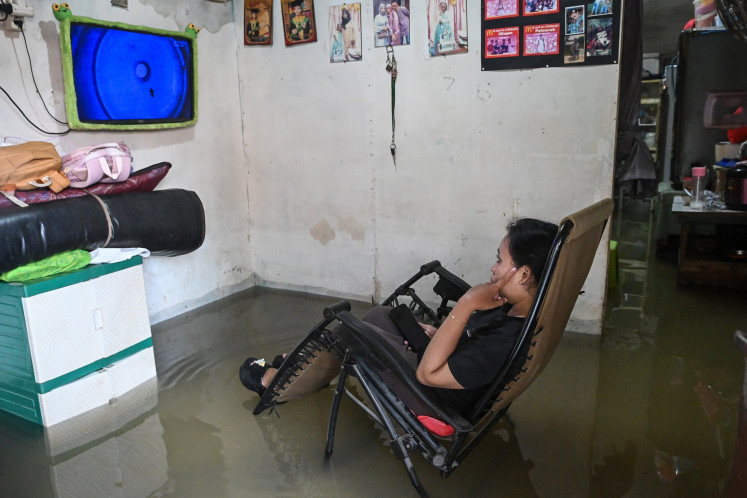Popular Reads
Top Results
Can't find what you're looking for?
View all search resultsPopular Reads
Top Results
Can't find what you're looking for?
View all search resultsSummer camp helps troubled youth reach their dreams
A Buddhist organization gives youngster a way to experience interreligious tolerance and move on from their problems.
Change text size
Gift Premium Articles
to Anyone
A
ndi Goh used to smoke weed in Asahan, North Sumatra, since he was a fifth grader, but after engaging with art, he managed to end his addiction in 2016 and improve the relationship with his parents. He first learnt to play the guitar, but his interest then expanded to acting.
From July 1 to July 8, he spent his holiday joining the Ready to Take a Challenge (REACH) summer camp at the compound of the Myogan-Ji Buddhist temple in Bogor, West Java. There, he took theater class. One of his mentors was noted puppeteer Nanang Hape, who has traveled Europe to popularize wayang urban (urban puppet).
“In this class, we act, sing and dance,” he said, adding that, in addition to the theater class, there were nine other classes, such as music, movies, photography and a culinary class.
Held annually by Majelis Nichiren Shoshu Buddha Dharma Indonesia, the camp was joined by 700 youngsters aged 11 to 28 this year. They came from 13 provinces, including Aceh, South Sumatra, Jakarta, Bali, West Kalimantan and South Sulawesi.
A day before the camp ended, Andi’s group staged a musical titled Huana Punya Story di New York (Huana Has a Story in New York), which revolves around a competition between Indonesian migrant workers of Javanese decent and those of Chinese decent in New York in the United States.
Although he was a newbie in acting, his performance passed with flying colors. After him, other participants, who took show choir and dance classes, wowed the spectators, thanks to their mentors, including Eki Dance Company choreographer Rusdy Rukmarata and Jamaica Cafe vocal group member Michael da Lopez.
What surprised from the choir performance was the fact that, despite the invasion of foreign music, youngsters still love dangdut. The audience went wild when “This is Me”, the soundtrack of movie The Greatest Showman, was mixed with dangdut songs like “Lagi Syantik” (Still Pretty) by Siti Badriah and “Sayang” (Dear) by Via Vallen.
I want you: A participant in the REACH youth camp sings “Melompat Lebih Tinggi” (Jump higher), a single by rock band Sheila on 7. (JP/A. Kurniawan Ulung)Rusdy, who is also a pandita (priest) with Majelis Nichiren Shoshu Buddha Dharma Indonesia, says that more than 30,000 youngsters across the archipelago have joined his summer camp since it was first held in 1988. Its target is the young generation, because it aims to unlock their potential.
REACH also held Buddhology class in the morning.
“To attract youngsters to learn religion is difficult, because they think that it is more suitable for elderly people. Therefore, here, we not only teach them what is trending today, such as electronic dance music, but also moral values, such as cooperating with and respecting people of different faiths, [in the Buddhology class],” Rusdy said.
According to him, many of the participants of REACH come from broken homes and are former drug addicts. Therefore, religious education was included in the programs, because it would help them pass hard times and guide them to be better people.
“We, sometimes, cannot put the blame on the parents for deciding to divorce or for going bankrupt because of gambling, but at least, [through religious education] these children can accept what is happening to their parents and take lessons from that,” Rusdy said.
“So, there will be no hatred between these children and their families and people around them. If the children hate their environment, especially their families, they will hate themselves,” he added.
“If they realize that, they can develop their talents and will succeed in the future.”
REACH, however, is not exclusive to Buddhists. This year, 10 percent of its participants were Muslims or Christians, he said, adding that they were not required to join the religious classes.
Fitri Naulia, a hijab-wearing university student from Palembang, South Sumatra, who took a movie class during REACH, said the camp had enabled her to experience interreligious tolerance, because, although most of its participants were Buddhists, she was not treated like a minority. It also provided her a room to pray.
Acting funny: A group of teenagers presents a comedy drama at the compound of the Myogan-Jo Buddhist temple in Bogor on Saturday afternoon. (JP/A. Kurniawan Ulung)“The head of the committee here is very nice to me. Although our religions are different, he guarantees that my rights as a participant are preserved like those of others,” she said.
“They are not racists.”
Fitri said she had experienced some resistance when asking for permission to join REACH, because her mother thought it would influence her toward converting to Buddhism.
“My mother said, ‘I am afraid that when are in heaven, you will not be with us,” the 21-year-old recalled, laughing.
Fitri is happy, because her curiosity for moviemaking was satisfied at the camp. In the movie class, she got a chance to play in a short movie titled Demam Tari (Dance Fever), a remake of the 1985 film bearing the same title, under the supervision of Alim Sudio, the screenwriter for many famous movies, including Surga Yang Tak Dirindukan (The Undesired Heaven).
The movie class made her realize that acting was not as easy as she had thought and moviemaking was a complex process.
Rusdy was glad to see friendships develop between participants, after some chasms had been visible in the beginning.
According to his observation, that problem was a result not so much of differences in religion or race, but in economic background, because some of them came from rich families in big cities, while others were from simple families in small towns. However, in their classes, the gaps gradually faded away, because their passion for art united them.
Rusdy said that people engaged in art contributed to humanity and to making the world a better place.
“If art develops well in a society, that means human relations in it are good,” he said.

